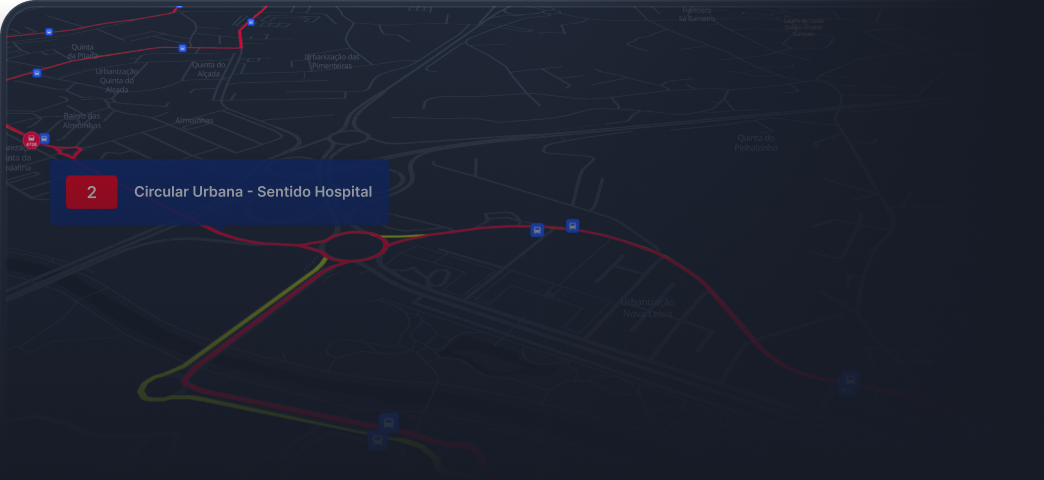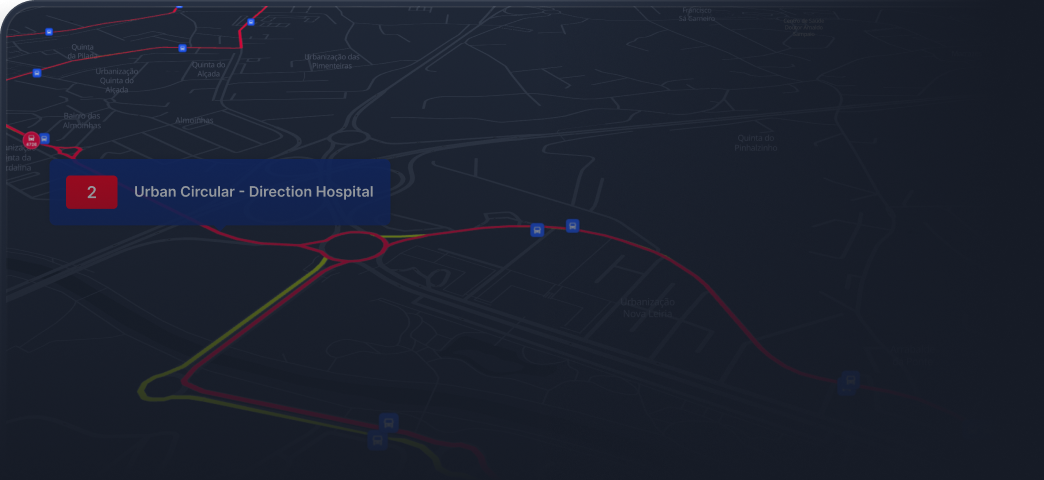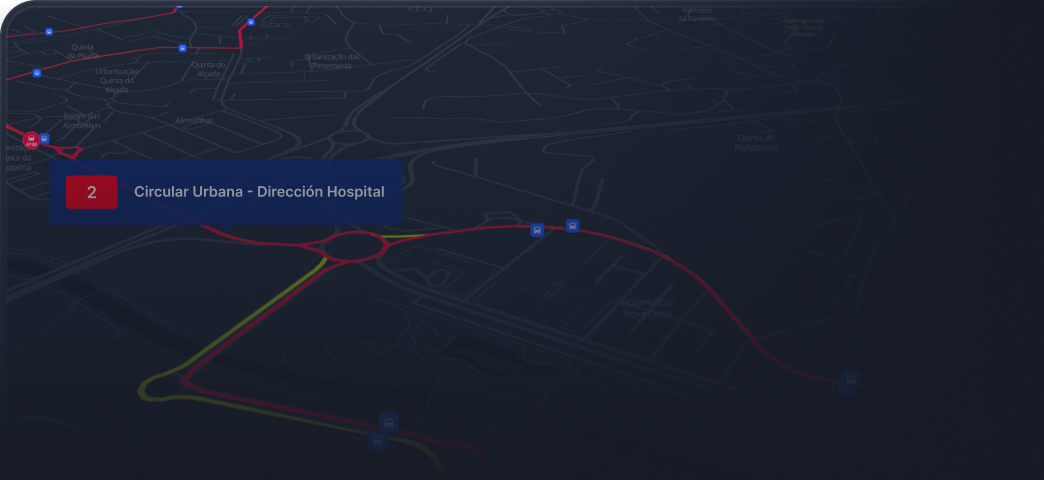From data to action: João Ferrão’s vision for fairer and more sustainable territories
Discover the role of data and technology in shaping more inclusive, effective, and future-oriented public policies.

João Ferrão is a geographer, former Secretary of State for Spatial Planning and Cities, and currently coordinates the ODSlocal Platform – an initiative promoted by the National Council for Environment and Sustainable Development (CNADS), aiming to advance the Sustainable Development Goals (SDGs) at the local level across Portuguese Municipalities.
As part of the 3rd International Conference on Public Policy and Data Science, held on 20 May 2025, Ubiwhere spoke with João Ferrão about the true power of data in shaping and implementing public policy. The conversation highlights the importance of transforming data into knowledge and real impact, promoting an approach that goes beyond technology to achieve social and territorial innovation.
“We must go beyond data, and it is very important that we (...) are capable of turning information into knowledge, knowledge into decisions, decisions into actions, and actions into real impacts.”

João Ferrão
Geographer and Coordinator of the ODSlocal Platform
UW: In your opinion, what is the power of data in public policy?
JF: There are several types of proximity. When we talk about proximity, we usually refer to physical proximity, but there’s also emotional, social and cognitive proximity. Data is very important for all these types of proximity.
When we talk about physical proximity, data is generally geo-referenced. We know the location of the data. And this is very important for urban planners, for those managing cities, or developing urban or rural areas, geo-referenced data is vital. But there are other types of data, more qualitative data, which is equally important, because we know that being physically close does not necessarily mean being close in terms of interaction with other people or groups. So information and data about those relationships, which are qualitative, are also crucial.
UW: From your perspective, how can smart territories go beyond technology and contribute to genuine social and territorial innovation?
JF: Technology is a means, not an end, and a very important one. In our daily lives, we use many kinds of technology. When we talk about smart cities, we refer to digital technologies, to platforms, to artificial intelligence, and to large volumes of data. All of this information is very important.
The technologies associated with smart cities are very important.
But again, I would repeat this idea: we must go beyond data, and it is very important that we, as individuals, as institutions and as a collective, are capable of turning information into knowledge, knowledge into decisions, decisions into actions, and actions into real impacts.
Our goal is to improve our territories, whether they are cities, rural areas, city centres or suburbs.
And so, this movement from data and information to decisions and impacts is crucial for two reasons. First, to help us respond more effectively to problems and needs, and second — in a complementary way — to allow us to look at the futures we want, to identify the pathways that lead to these desired futures, and to find the best way to build and reach them.
UW: If you had the opportunity to advise local decision-makers who are just beginning the digital transformation of their territories, what advice would you give them?
JF: There are instrumental goals and there are substantive goals. Instrumental goals can form a long list and they are very important for local governments, such as waste management, basic sanitation, energy, air quality, pollution, and traffic.
So, we can use all of these tools and technologies to help us monitor and make decisions and develop more efficient systems for delivering services to citizens in all these areas. Let’s say these are instrumental or immediate goals, and they are easier to develop.
Then there are other types of goals. These are more substantive goals, which have a more aspirational nature. Once again, the things we wish to see happen and that therefore have a longer time frame. But these technologies also help us, even in terms of including participatory processes, to collectively define the futures we desire. These more substantive goals relate to diversity, equity, prosperity, and the Sustainable Development Goals. That is, defining goals and understanding how to reach these desirable goals, making use, among other tools, of all that digital technologies and big data management and knowledge can offer us.
Portal Público
Inclui funcionalidades que proporcionam uma experiência interativa e transparente, promovendo a participação cidadã, tais como:
▪︎ Visualização do estado da cidade em tempo real
▪︎ Inquéritos à população
▪︎ Interação com os cidadãos (Reporte de Ocorrências)
▪︎ Capacidade de integração com outros serviços do território
▪︎ Formulário de contacto
Inteligência Artificial
Potencia a acessibilidade e a análise avançada de dados, permitindo uma interação mais intuitiva, através de:
▪︎ Chatbot de apoio à compreensão dos dados
▪︎ Criação de novas visualizações com base em dados armazenados no Data Lake
▪︎ Capacidade de envio das visualizações por email
▪︎ Integração com LLM
▪︎ Integração nativa na plataforma
▪︎ Capacidade de instalação on-prem e em cloud
Portal de Dados Abertos
Promove a transparência e a inovação através das suas funcionalidades, incluindo:
▪︎ Disponibilização de dados abertos à população
▪︎ Criação de ecossistema de Open Data
▪︎ Plug-ins de rápida visualização
▪︎ Criação de ecossistema de inovação
▪︎ Federado com a Plataforma de Gestão Urbana
Aplicação do Cidadão
Oferece aos cidadãos um acesso prático e intuitivo a informações em tempo real sobre a cidade, permitindo uma participação ativa na gestão urbana, através de:
▪︎ Inquéritos à população
▪︎ Interação com os cidadãos
▪︎ Formulário de contacto
▪︎ Reporte de Ocorrências
▪︎ Federado com a Plataforma de Gestão Urbana
Citizen App
Offers citizens practical and intuitive access to real-time city information, enabling active participation in urban management through:
▪︎ Public surveys
▪︎ Citizen interaction
▪︎ Contact form
▪︎ Incident reporting
▪︎ Federated with the Urban Management Platform
Open Data Portal
Promotes transparency and innovation through functionalities including:
▪︎ Open data availability for the public
▪︎ Development of an Open Data ecosystem
▪︎ Quick visualisation plug-ins
▪︎ Creation of an innovation ecosystem
▪︎ Federated with the Urban Management Platform
Aplicación del Ciudadano
Ofrece a los ciudadanos un acceso práctico y intuitivo a información en tiempo real sobre la ciudad, lo que les permite participar activamente en la gestión urbana a través de:
▪︎ Encuestas a la población
▪︎ Interacción con los ciudadanos
▪︎ Formulario de contacto
▪︎ Notificación de Incidencias
▪︎ Federado con la Plataforma de Gestión Urbana
Artificial Intelligence
Enhances accessibility and advanced data analysis, enabling more intuitive interaction through:
▪︎ Chatbot support for data comprehension
▪︎ Creation of new visualisations based on stored Data Lake information
▪︎ Ability to send visualisations via email
▪︎ Integration with LLM
▪︎ Native platform integration
▪︎ On-premise and cloud deployment options
Public Portal
Includes features that provide an interactive and transparent experience, promoting citizen engagement, such as:
▪︎ Real-time city status visualisation
▪︎ Public surveys
▪︎ Citizen interaction (Incident Reporting)
▪︎ Integration with other territorial services
▪︎ Contact form
Portal de Datos Abiertos
Promueve la transparencia y la innovación mediante funciones entre las que se incluyen:
▪︎ Acceso a datos abiertos para la población
▪︎ Creación de un ecosistema de Open Data
▪︎ Plug-ins para visualización rápida
▪︎ Creación de un ecosistema de innovación
▪︎ Federado con la Plataforma de Gestión Urbana
Portal Público
Incluye funcionalidades que proporcionan una experiencia interactiva y transparente, promoviendo la participación ciudadana, tales como:
▪︎ Visualización en tiempo real del estado de la ciudad
▪︎ Encuestas a la población
▪︎ Interacción con los ciudadanos (Notificación de Incidencias)
▪︎ Capacidad de integración con otros servicios del territorio
▪︎ Formulario de contacto
Inteligencia Artificial
Potencia la accesibilidad y el análisis avanzado de datos, lo que permite una interacción más intuitiva mediante:
▪︎ Chatbot de apoyo para la comprensión de los datos
▪︎ Creación de nuevas visualizaciones basadas en datos almacenados en Data Lake
▪︎ Envío de visualizaciones por correo electrónico
▪︎ Integración con LLM
▪︎ Integración nativa en la plataforma
▪︎ Capacidad de instalación on-premise y en la cloud
Receba a brochura da Plataforma de Gestão Urbana
Fique a conhecer as funcionalidades e componentes que ajudam a gerir os territórios de forma mais inteligente. Preencha o formulário para pedir acesso à brochura.









